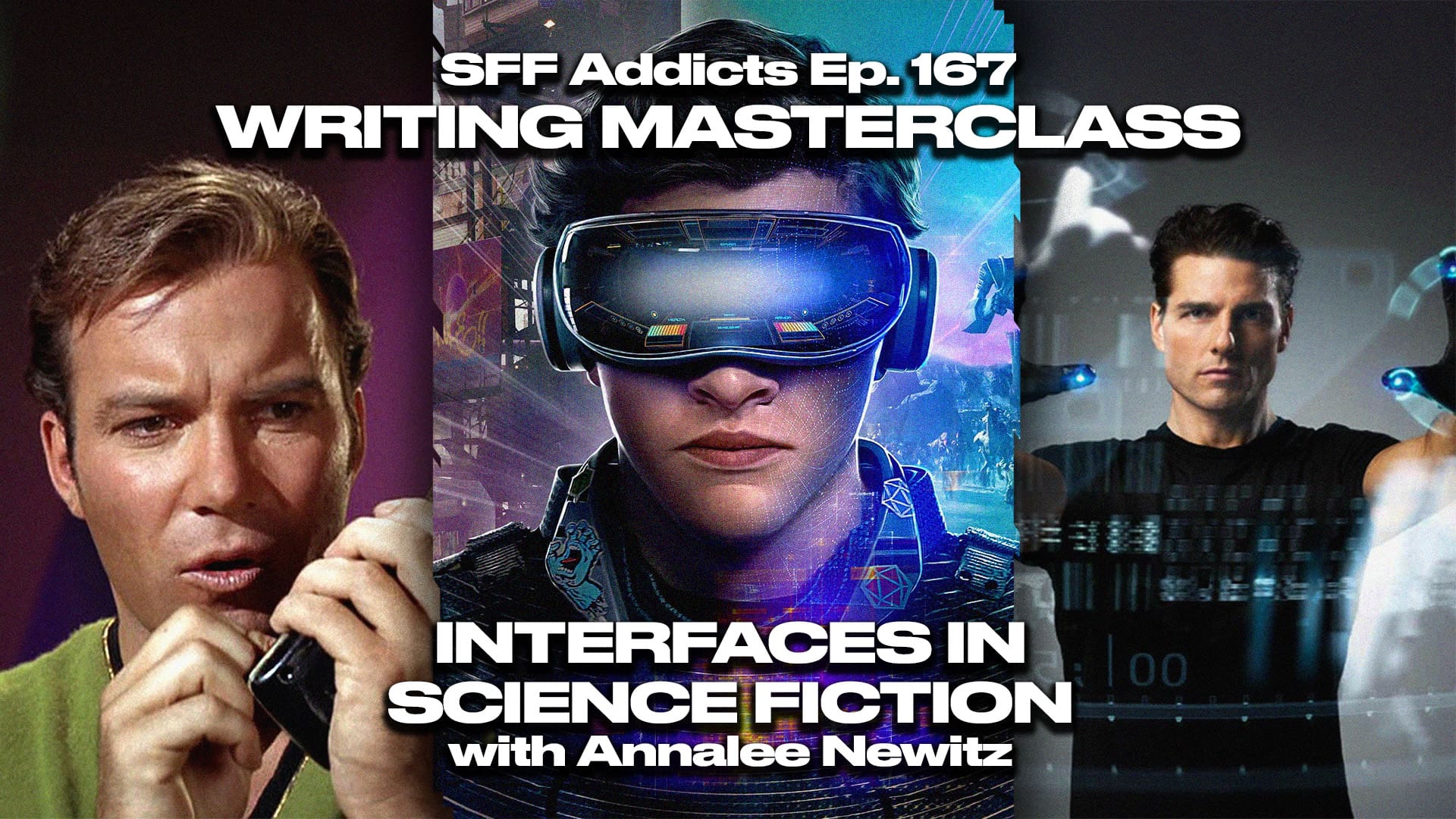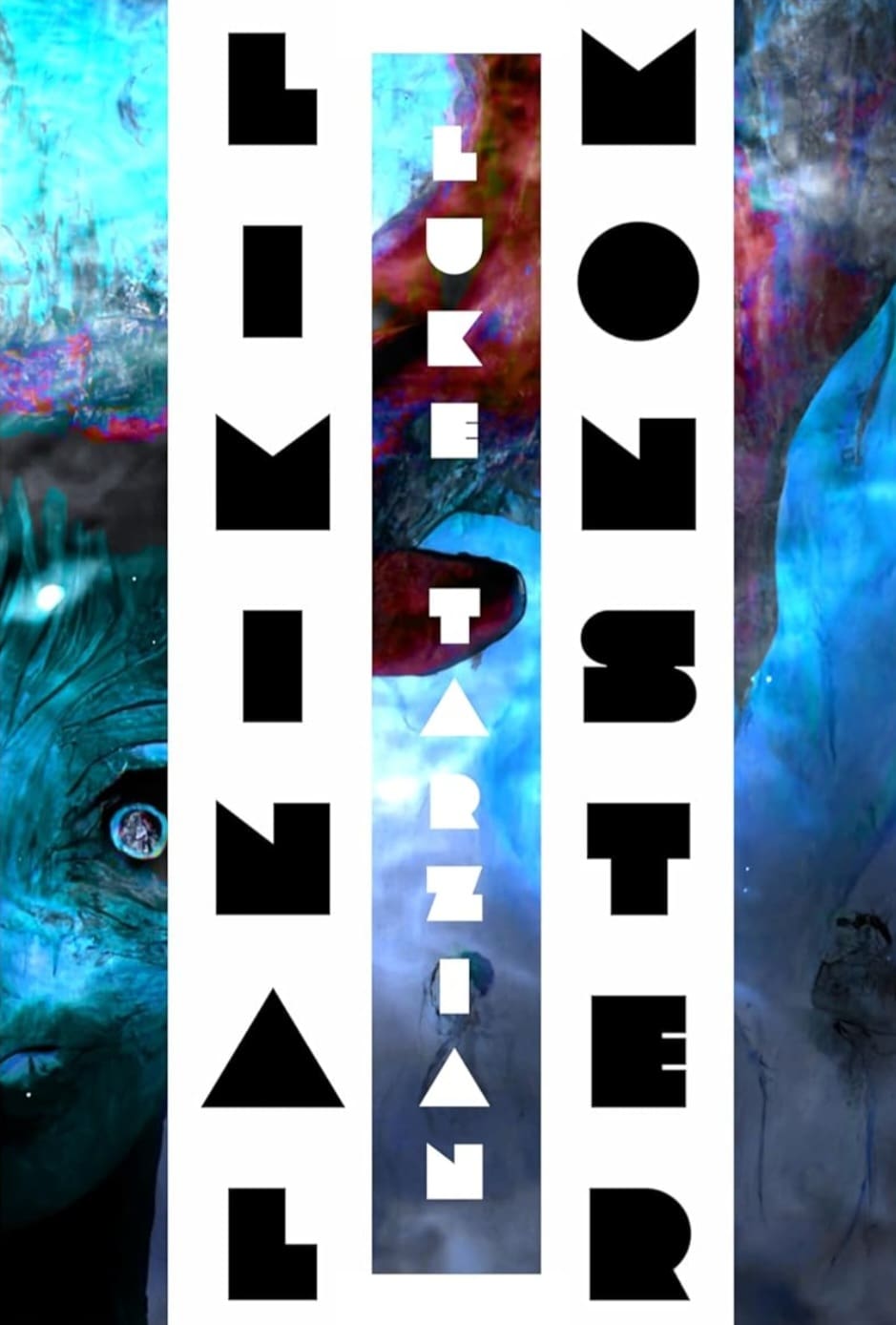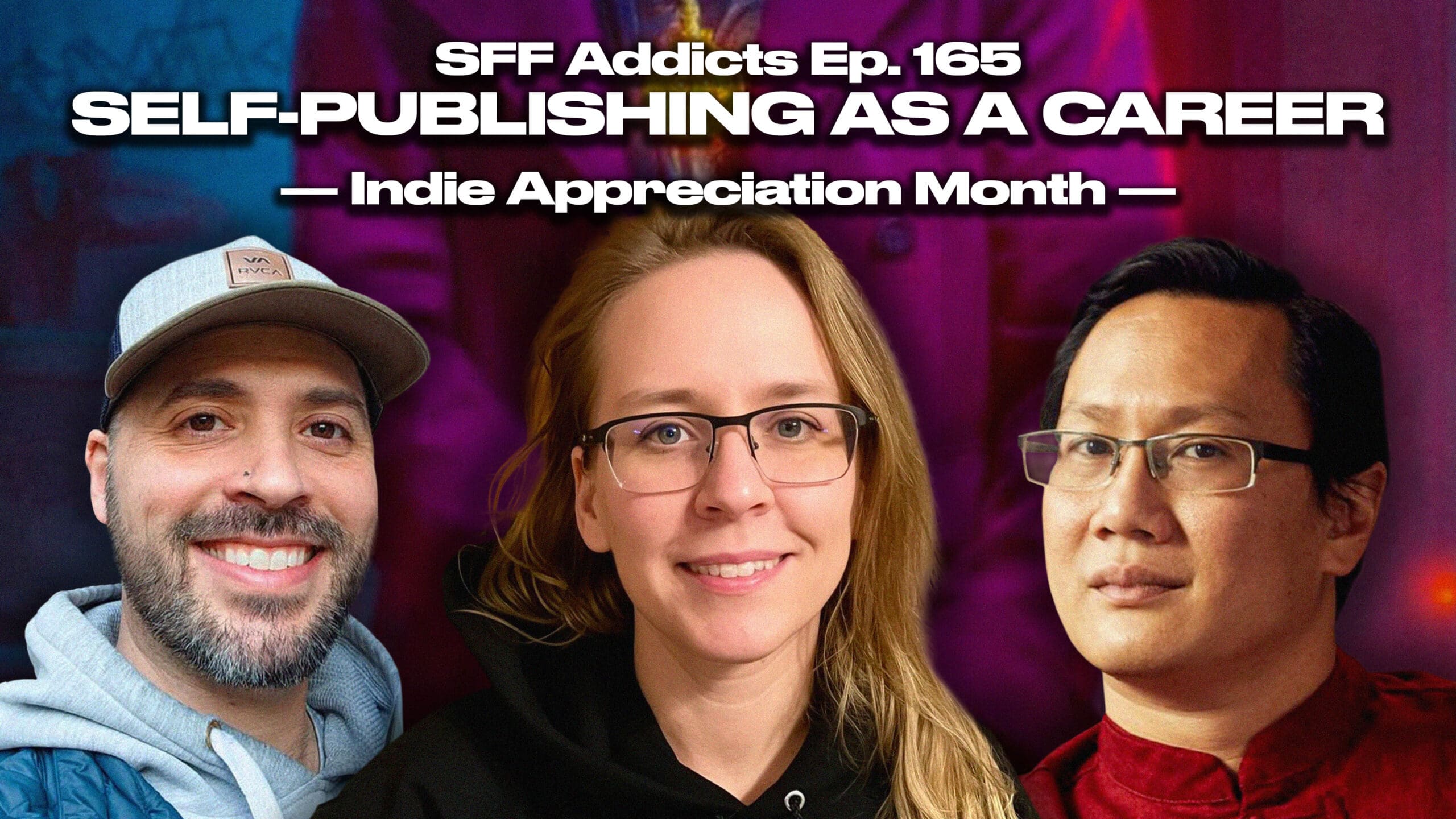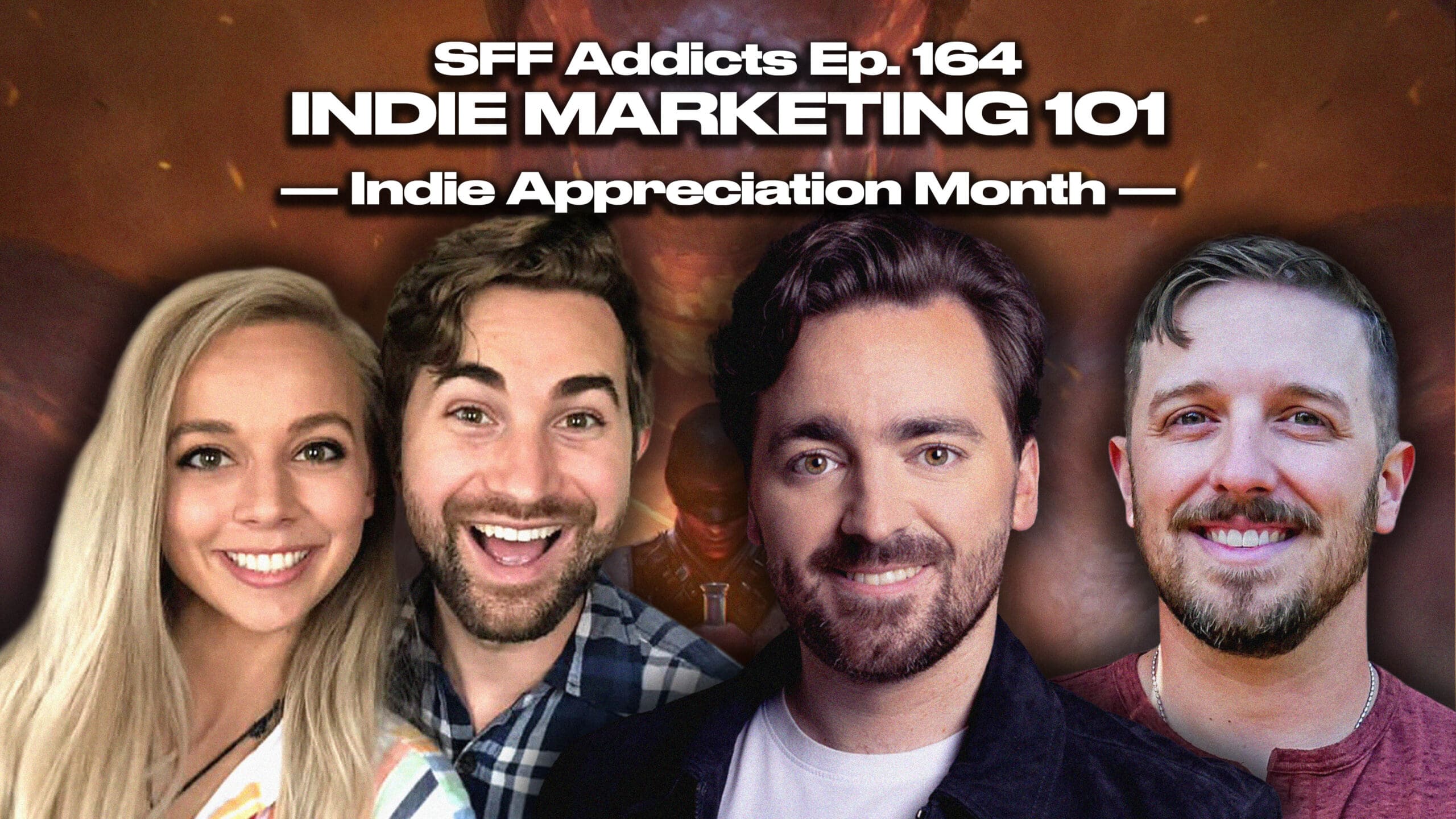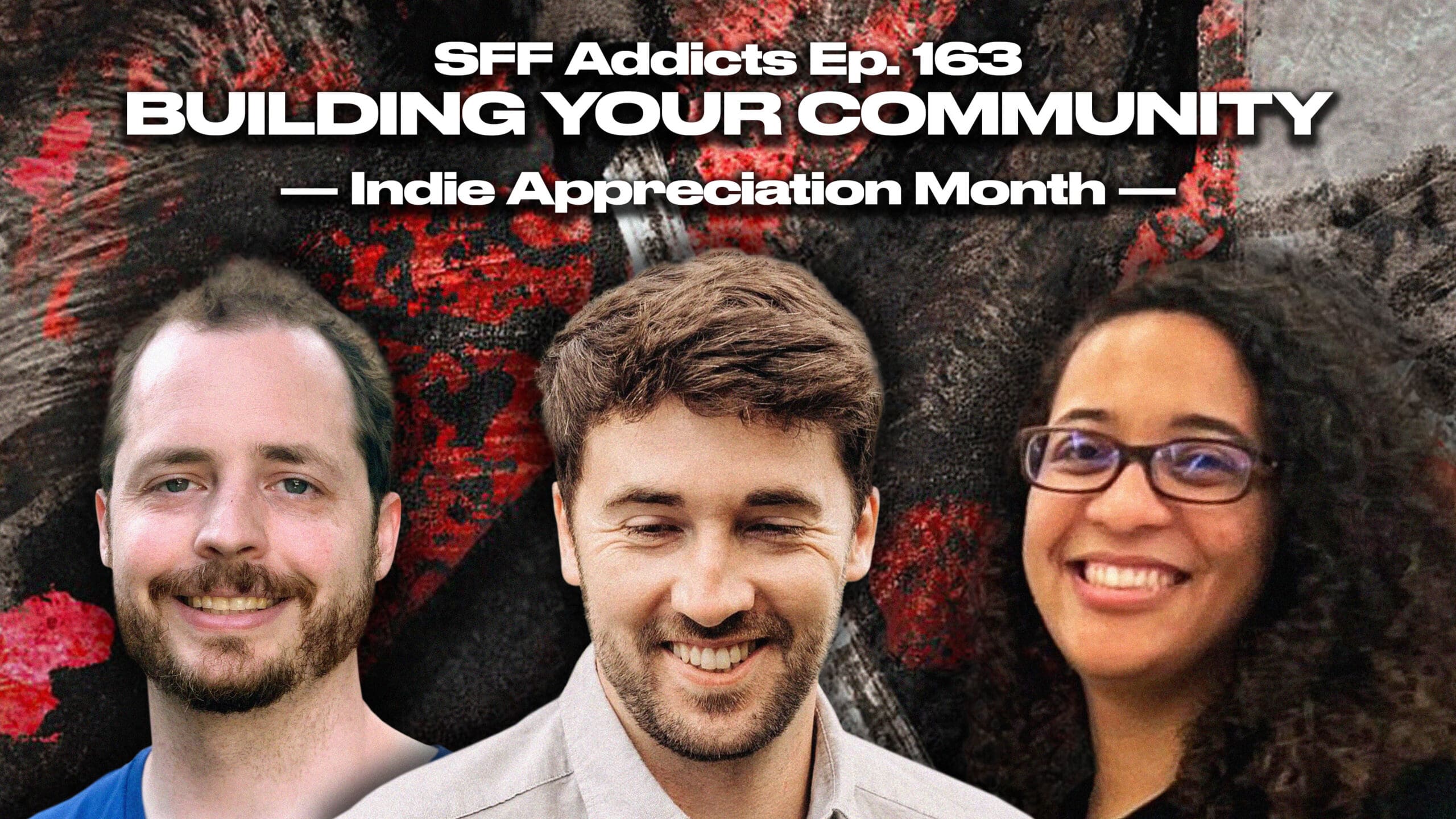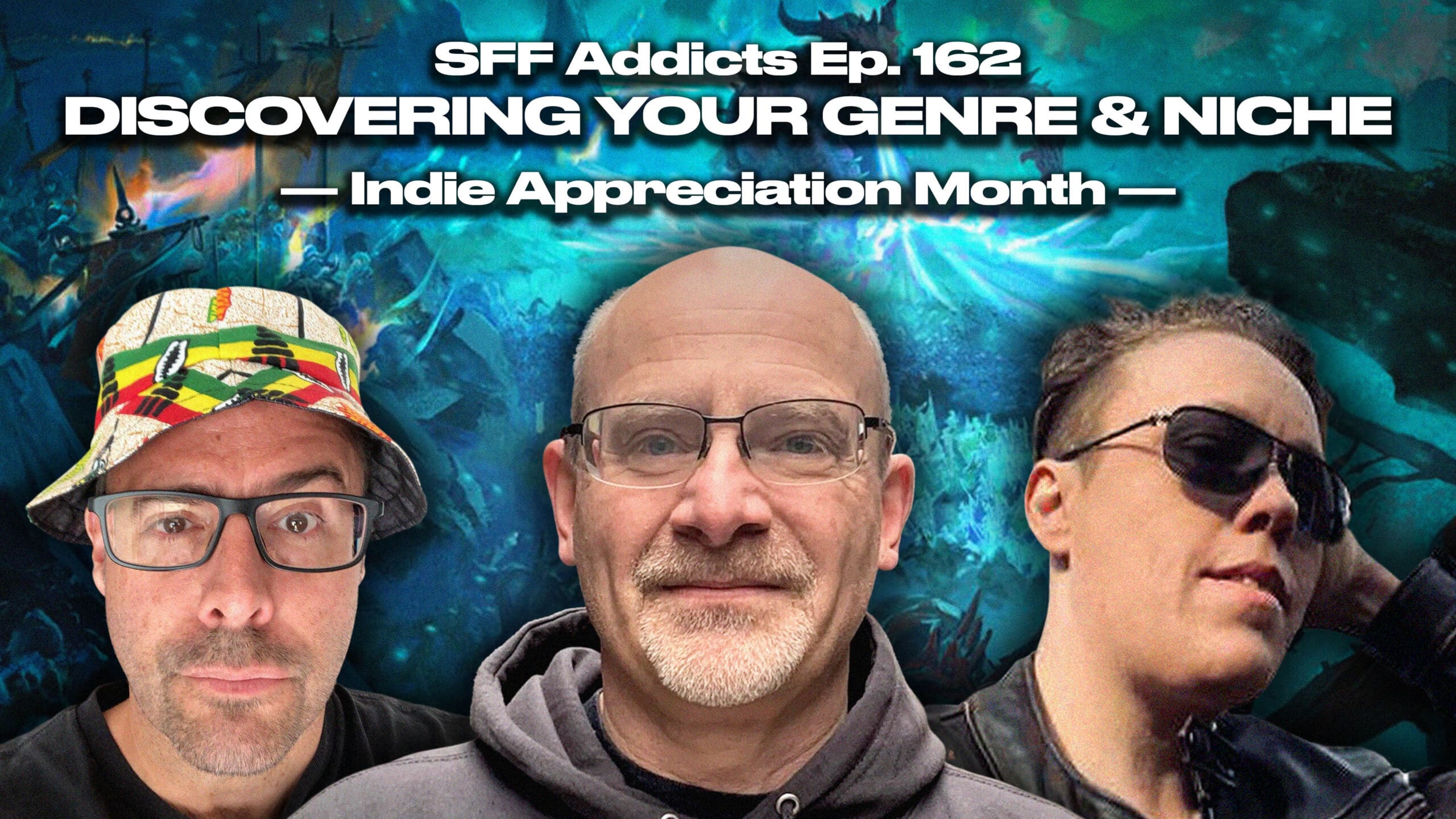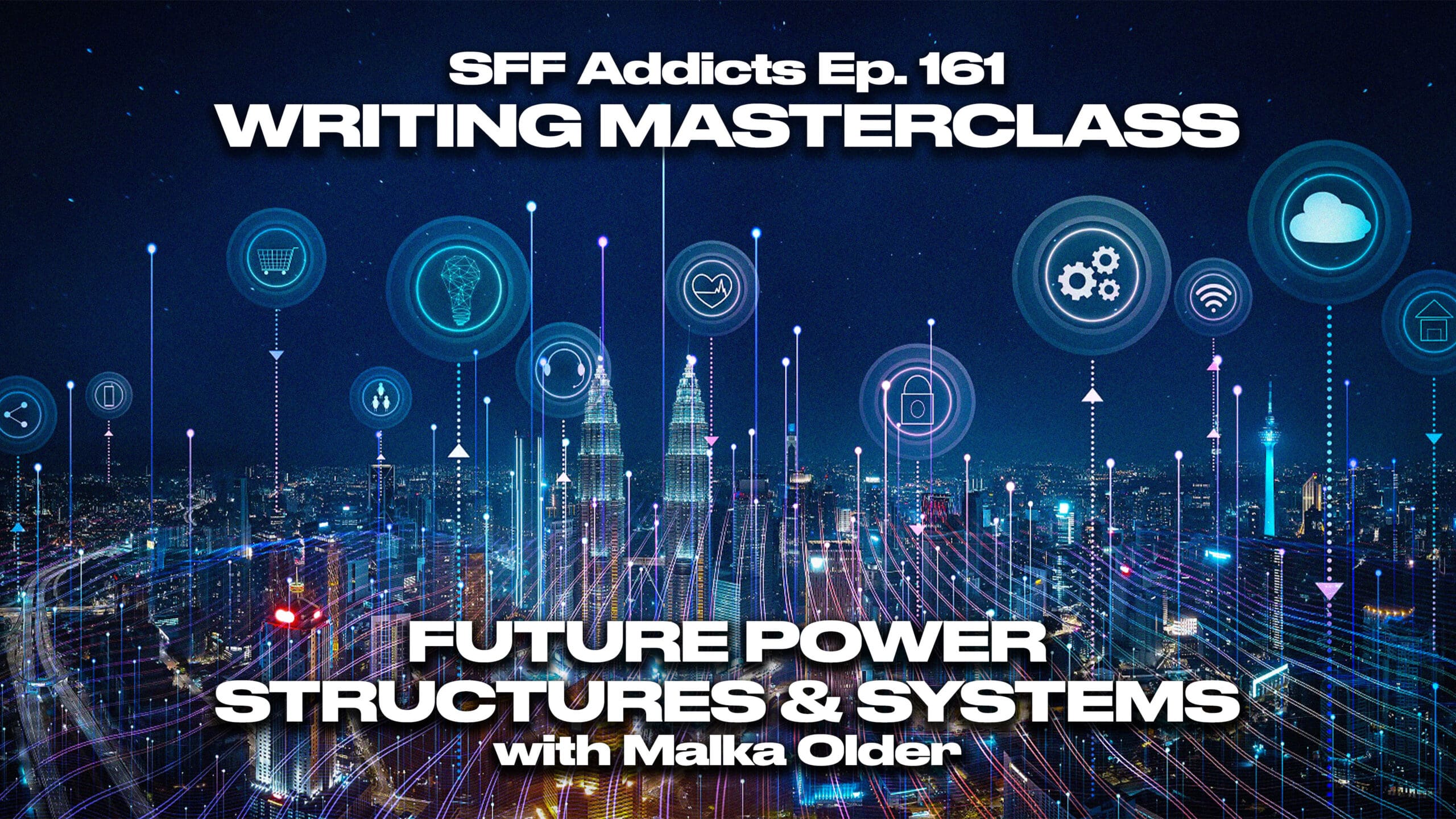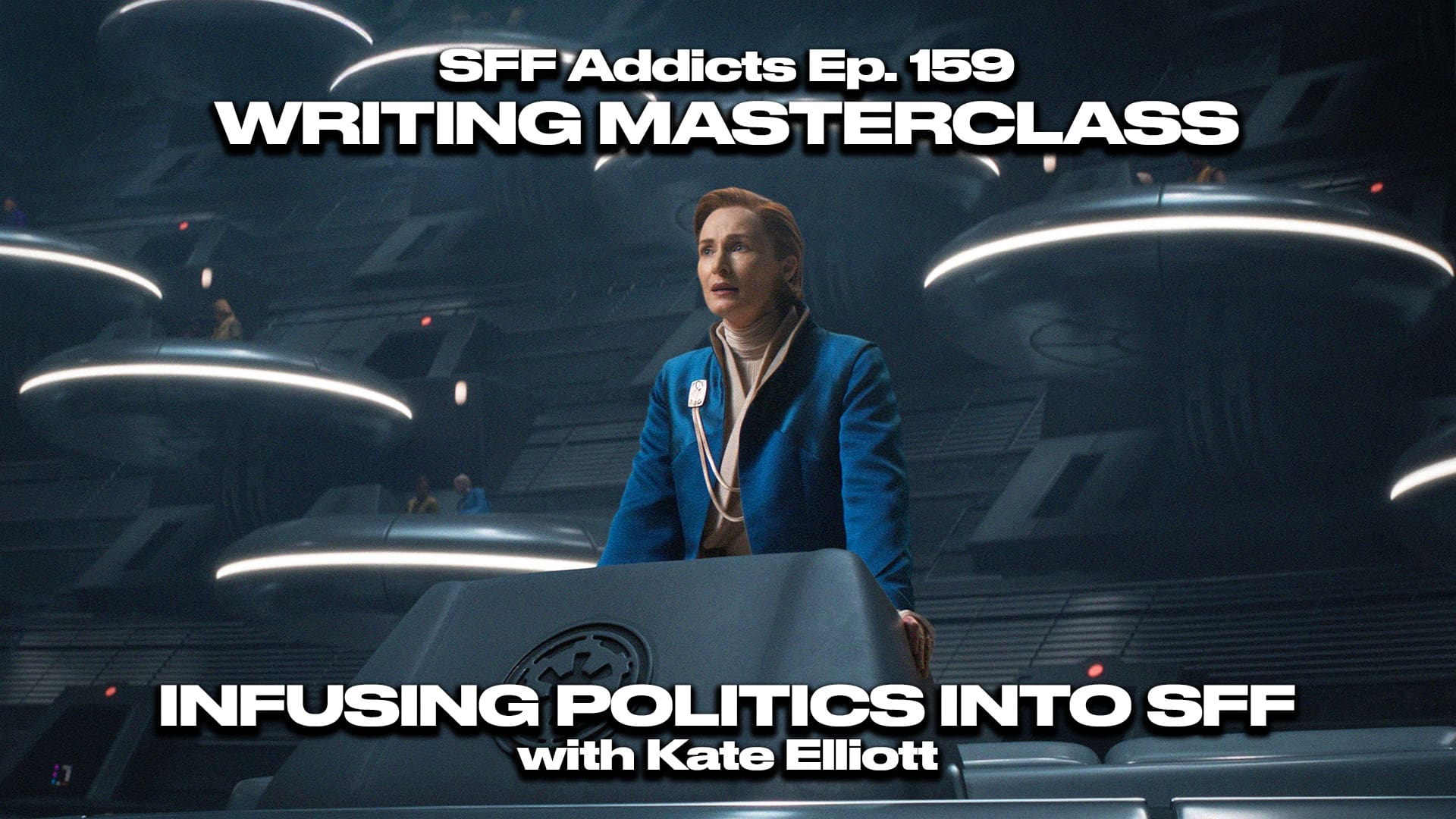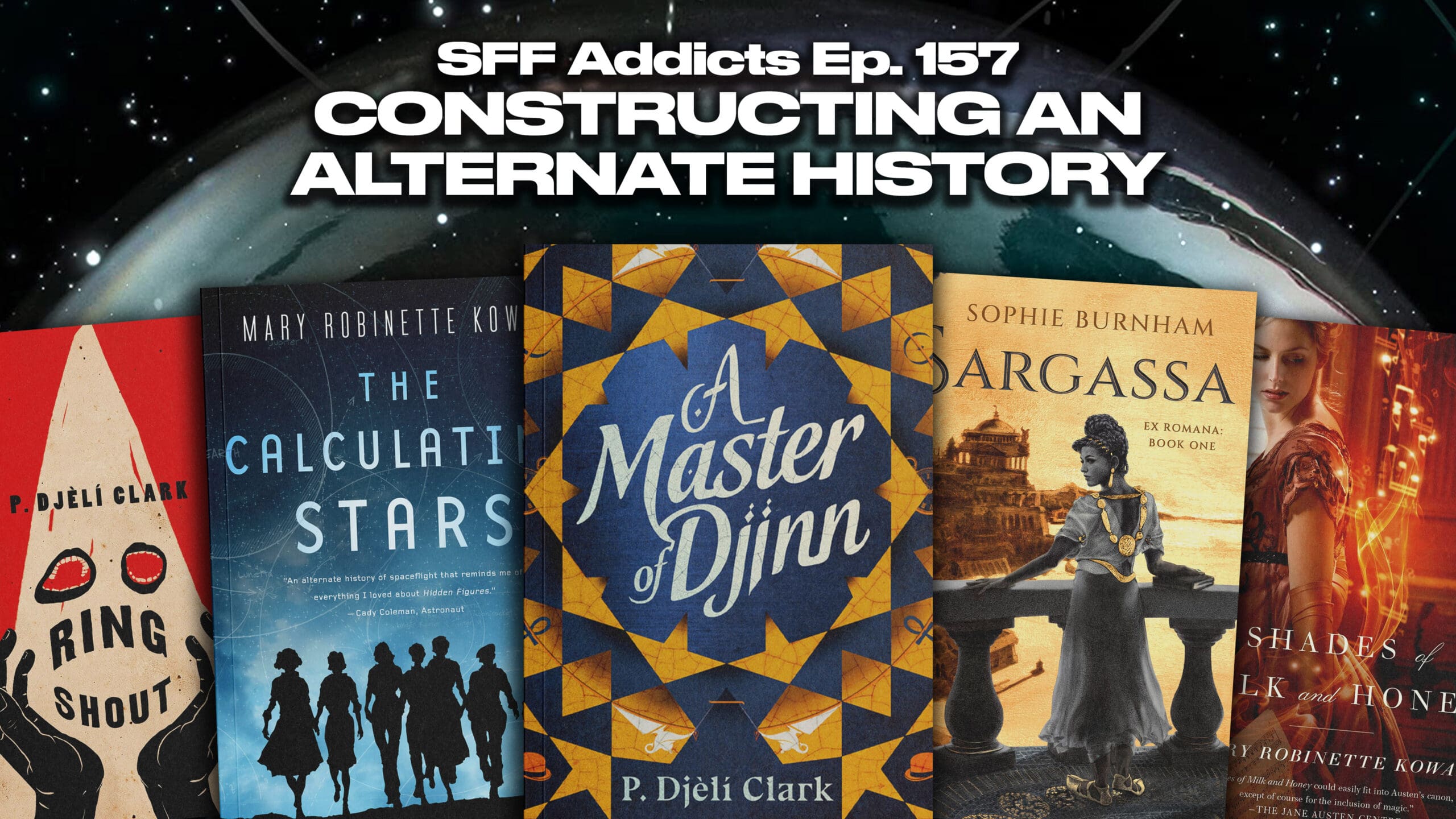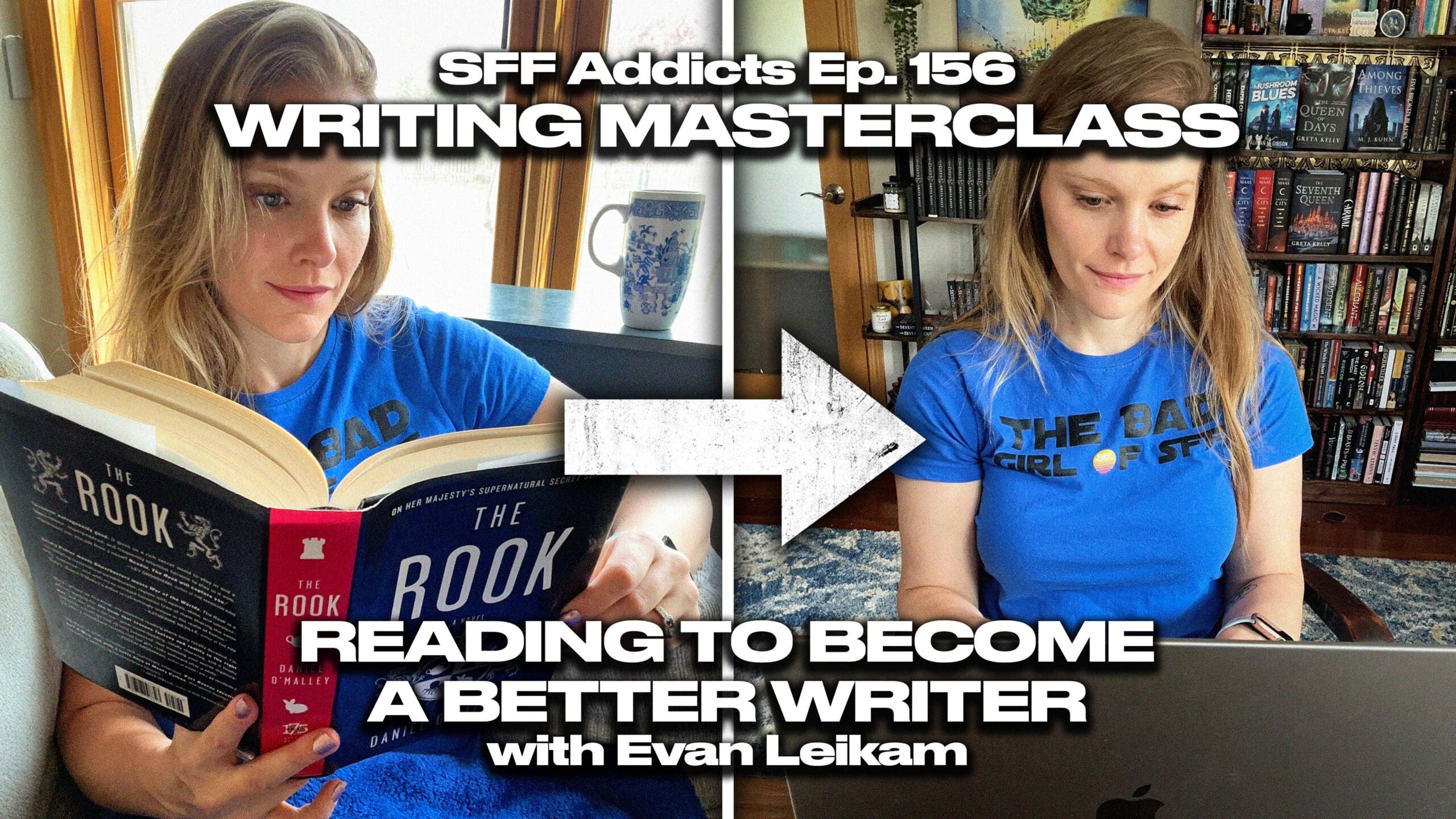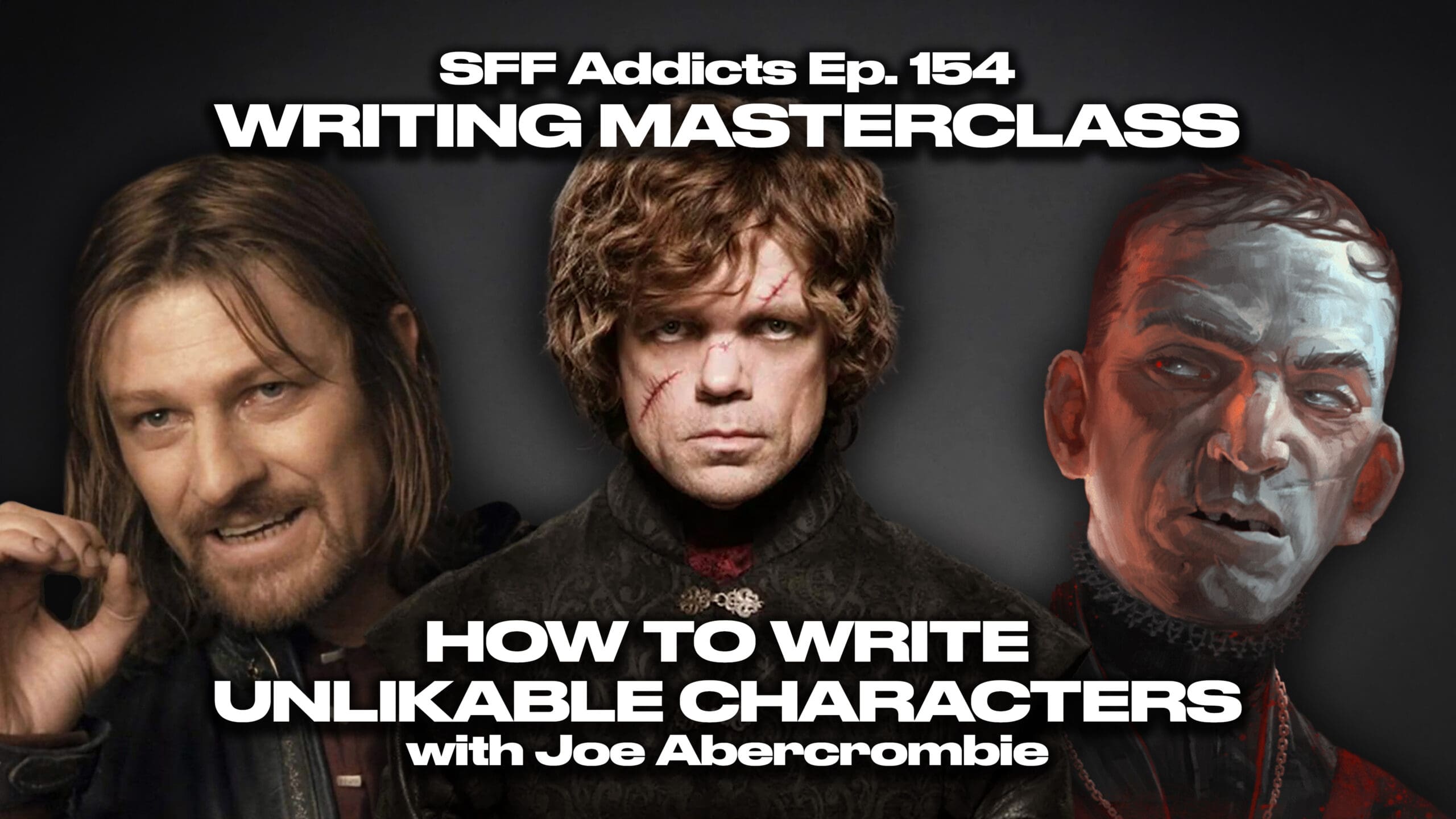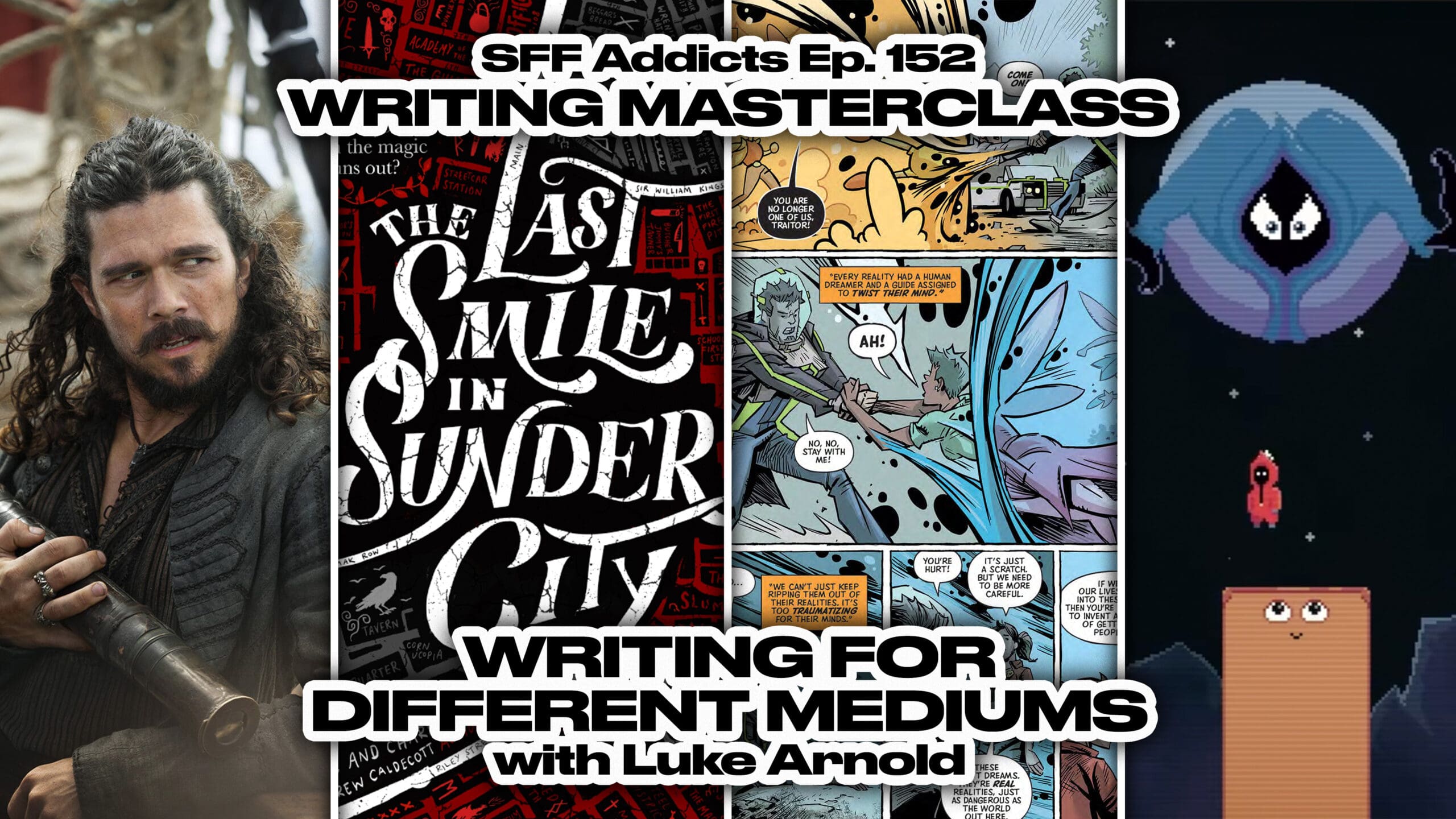Join co-hosts Adrian M. Gibson and M.J. Kuhn as they delve into a writing masterclass on Interfaces in Science Fiction with author/journalist Annalee Newitz. During the episode, Annalee deconstructs interfaces, including defining what interfaces are, how they appear in science fiction, tropes and misrepresentations about interfaces, creating believable/functional interfaces in your stories, realism and specificity, communication via interfaces, connecting people and environments, the intersection of science and sci-fi, hopes for the future of interfaces and more.
Masterclass
Review: Liminal Monster by Luke Tarzian
Synopsis IN THE CENTER OF THE FOREST SITS A HOUSE OF LEAVES AND ASH. INSIDE THE HOUSE, HIS HEART AND LIES. Inside the house called Sempiternity there is a lake, at the center of which an island sits. Upon the island, a spire of stone. Surrounding the spire, an orchard of dreams. Beneath an apple […]
SFF Addicts Ep. 165: Self-Publishing as a Career with Tao Wong, Shami Stovall & Michael Michel (Indie Appreciation Month)
Join host Adrian M. Gibson and guest authors Tao Wong, Shami Stovall and Michael Michel for our final Indie Appreciation Month panel on Self-Publishing as a Career. During the panel, Tao, Shami and Michael discuss the long game of self-publishing, including self-publishing as a JOB, being a full-time vs. part-time writer/creative, budgeting and investment for your books, long-term finances and project management, experimenting with release strategies, having purpose and patience, lucrative book formats and publishing platforms, career longevity, income streams, burnout and more.
SFF Addicts Ep. 164: Indie Marketing 101 with Michael R. Miller, Z.S. Diamanti & Blake & Raven Penn (Indie Appreciation Month)
Join host Adrian M. Gibson and guest authors Michael R. Miller, Z.S. Diamanti and Blake & Raven Penn for an Indie Appreciation Month panel on Indie Marketing 101. During the panel, Michael, Zac, Blake and Raven offer up some marketing fundamentals, including why marketing is important for indie authors, approaches to marketing over time, building your author platform, mailing lists and reader magnets, pre-launch vs. post-launch marketing, social media platforms and content, paid advertising methods, discounts and giveaways, reviews and ARCs, comp titles, Kickstarter, networking, word-of-mouth, book tours, awards, competitions and more.
SFF Addicts Ep. 163: Building Your Community with Ryan Cahill, Tatiana Obey & James Lloyd Dulin (Indie Appreciation Month)
Join host M.J. Kuhn and guest authors Ryan Cahill, Tatiana Obey and James Lloyd Dulin for an Indie Appreciation Month panel on Building Your Community. During the panel, Ryan, Tatiana and James delve into various facets of community, including what community means to authors, types of communities, your author brand, first steps and platforms for building communities, authenticity and targeting audiences, maintaining communities without burning out, community-related challenges, mental health, negativity/positivity and more.
SFF Addicts Ep. 162: Discovering Your Genre & Niche with Michael R. Fletcher, Krystle Matar & Nick Snape (Indie Appreciation Month)
Join host Greta Kelly and guest authors Michael R. Fletcher, Krystle Matar and Nick Snape for an Indie Appreciation Month panel on Discovering Your Genre & Niche. During the panel, Michael, Krystle and Nick explores the ins and outs of genre, including whether or not genre matters, finding inspiration in the genres you grew up reading, experimenting with subgenres and niches, deciphering age categories, writing to market vs. creating markets, categories/keywords on publishing platforms, grabbing readers’ attention, writing an effective synopsis and more.
SFF Addicts Ep. 161: Future Power Structures & Systems with Malka Older (Writing Masterclass)
Join co-hosts Adrian M. Gibson and Greta Kelly as they delve into a writing masterclass on Future Power Structures & Systems with author Malka Older. During the episode, Malka envisions the structures that shape us, including how to define power structures and systems, the role of sci-fi in imagining possible futures, how humans experience systems, incorporating power structures into stories, predicting the future of large- and small-scale systems, characters vs. power structures, stakes, metaphors, community, resistance and more.
SFF Addicts Ep. 159: Infusing Politics into SFF with Kate Elliott (Writing Masterclass)
Join co-hosts Adrian M. Gibson and Greta Kelly as they delve into a writing masterclass on Infusing Politics into SFF with author Kate Elliott. During the episode, Kate deconstructs the meaning of politics in sci-fi and fantasy, including why SFF and politics meld so well, choosing political themes for your story/world, revealing politics through characters, political biases, nuance and empathy, in-groups/out-groups and “otherness”, using environment and geography to convey politics, “access” as a foundation for political structures and more.
SFF Addicts Ep. 157: Constructing an Alternate History with P. Djèlí Clark, Mary Robinette Kowal & Sophie Burnham (Masterclass Panel)
Join co-hosts Adrian M. Gibson and Greta Kelly for a masterclass panel on Constructing an Alternate History, featuring authors P. Djèlí Clark, Mary Robinette Kowal and Sophie Burnham. During the panel, they lay out the foundations of alternate history stories, discussing what an alternate history is, what these stories can achieve, the divergence point, cause and effect, balancing real history vs. imagined history, bringing modern ideas/concerns into an alternate history, the legitimacy of history, historical research and more.
SFF Addicts Ep. 156: Reading to Become a Better Writer with Evan Leikam (Writing Masterclass)
Join co-hosts Adrian M. Gibson and M.J. Kuhn as they delve into a writing masterclass on Reading to Become a Better Writer with author/content creator Evan Leikam (AKA Book Reviews Kill). During the episode, Evan examines the relationship between reading and writing, including how reading shapes us, how to read as a writer, finding the time to read, reading however (and wherever) you can, reading for enjoyment vs. learning, improving your writing through the books you read, applying lessons and breaking the rules, writing craft books and more.
SFF Addicts Ep. 154: How to Write Unlikable Characters with Joe Abercrombie (Writing Masterclass)
Join co-hosts Adrian M. Gibson, M.J. Kuhn and Greta Kelly as they delve into a writing masterclass on How to Write Unlikable Characters with bestselling author Joe Abercrombie. During the episode, Joe unpacks the core traits of unlikable characters, including what makes an unlikable character likable, why readers are fascinated by awful people, the process of creating an unlikable character, the importance of character voice, conveying character details through dialogue, morally gray character arcs, active vs. passive characters, revealing character vulnerabilities and flaws, reader investment, morally gray worlds, external conflict and more.
SFF Addicts Ep. 152: Writing for Different Mediums with Luke Arnold (Writing Masterclass)
Join co-hosts Adrian M. Gibson and Greta Kelly as they delve into a writing masterclass on Writing for Different Mediums with author/actor Luke Arnold. During the episode, Luke breaks down his approaches to four different mediums (prose, comics, screenwriting and video games), including expressing your creativity through various mediums, learning from other mediums, researching and understanding your medium, as well as comparing story structure, pacing, expectations, character development and worldbuilding across mediums.

